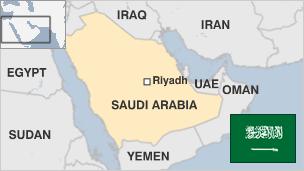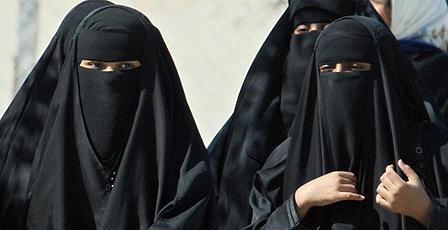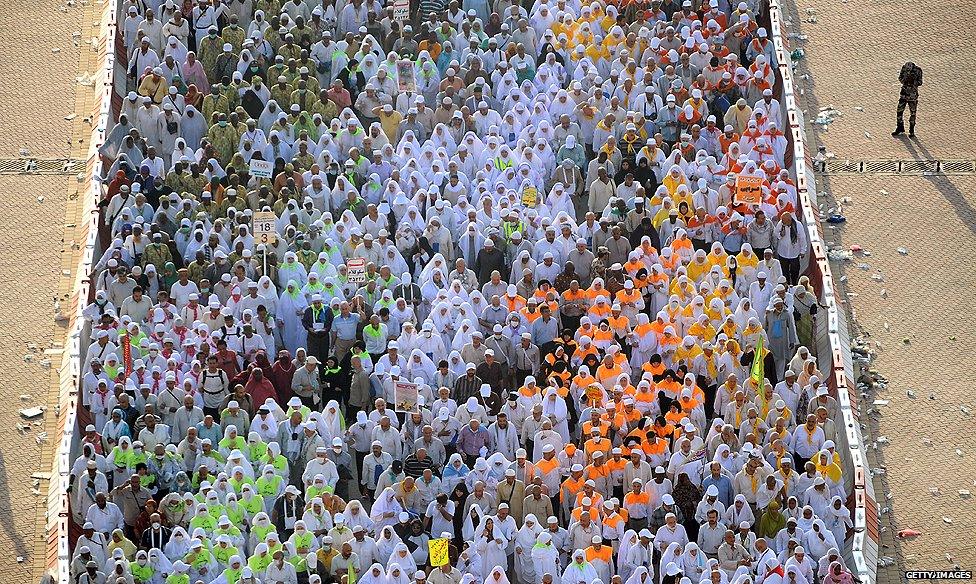Saudi Arabia profile - overview
- Published

One of the most insular countries in the Middle East, Saudi Arabia has emerged from being an underdeveloped desert kingdom to become one of the wealthiest nations in the region thanks to vast oil resources.
But its rulers face the delicate task of responding to pressure for reform while combating extremist violence.
Named after the ruling Al Saud family, which came to power in the 18th century, the country includes the Hijaz region - the birthplace of the Muslim Prophet Muhammad and the cradle of Islam. This fact, combined with the Al Sauds' espousal of a strict interpretation of Sunni Islam known as Wahhabism, has led it to develop a strongly religious self-identity.
The harsh punishments in the Wahhabi interpretation of Islamic law include public beheadings for a range of crimes, and these continue to attract criticism from international rights organisations.

Saudi women live under a wide range of restrictions, from dress to driving
Saudi Arabia was established in 1932 by King Abd-al-Aziz - known as the Lion of Najd - who seized Hejaz from the Hashemite family and united the country under his family's rule. Since his death in 1953 he has been succeeded by various sons.
The Al Saud dynasty's monopoly of power meant that during the 20th century successive kings were able to concentrate on economic modernisation and on developing the country's role as a regional power.
It has always been in the ruling family's interests to preserve stability in the region and to clamp down on extremist elements. To this end, it welcomed the stationing of US troops in the country after Iraq's invasion of Kuwait in 1990.
But the leadership's refusal to tolerate any kind of opposition may have encouraged the growth of dissident groups such as Osama Bin Laden's al-Qaeda, which benefited from popular resentment against the role of the US in the Middle East. Members of the large Shia minority, who form a majority in oil-rich Eastern Province, have become increasingly vocal in their demands for civil rights.
After the terrorist attacks on New York and Washington of 11 September 2001 - carried out mainly by Saudi nationals - the Saudi authorities were further torn between their natural instincts to step up internal security and pressure to allow a greater degree of democracy.
In 2003 suicide bombers suspected of links with al-Qaeda killed 35 people - including a number of foreigners - in the capital Riyadh. The targets of other attacks have included foreign workers and, since the rise of the Sunni extremist group Islamic State, the Shias of Eastern Province.
Demands for political reform have increased. Municipal elections in 2005 were a first, limited exercise in democracy. But political parties are banned - the opposition is organised from outside the country - and activists who publicly broach the subject of reform risk being jailed.
Calls for social change are on the rise, too. Activists for women's rights have become more vocal, focusing on practical campaigns such as the right to drive. Social media users are also testing the limits of freedom of expression.
Saudi Arabia sits on more than 25% of the world's known oil reserves. It is capable of producing more than 10 million barrels per day; that figure is set to rise.

Millions of Muslim pilgrims from all over the world congregate in the city of Mecca every year